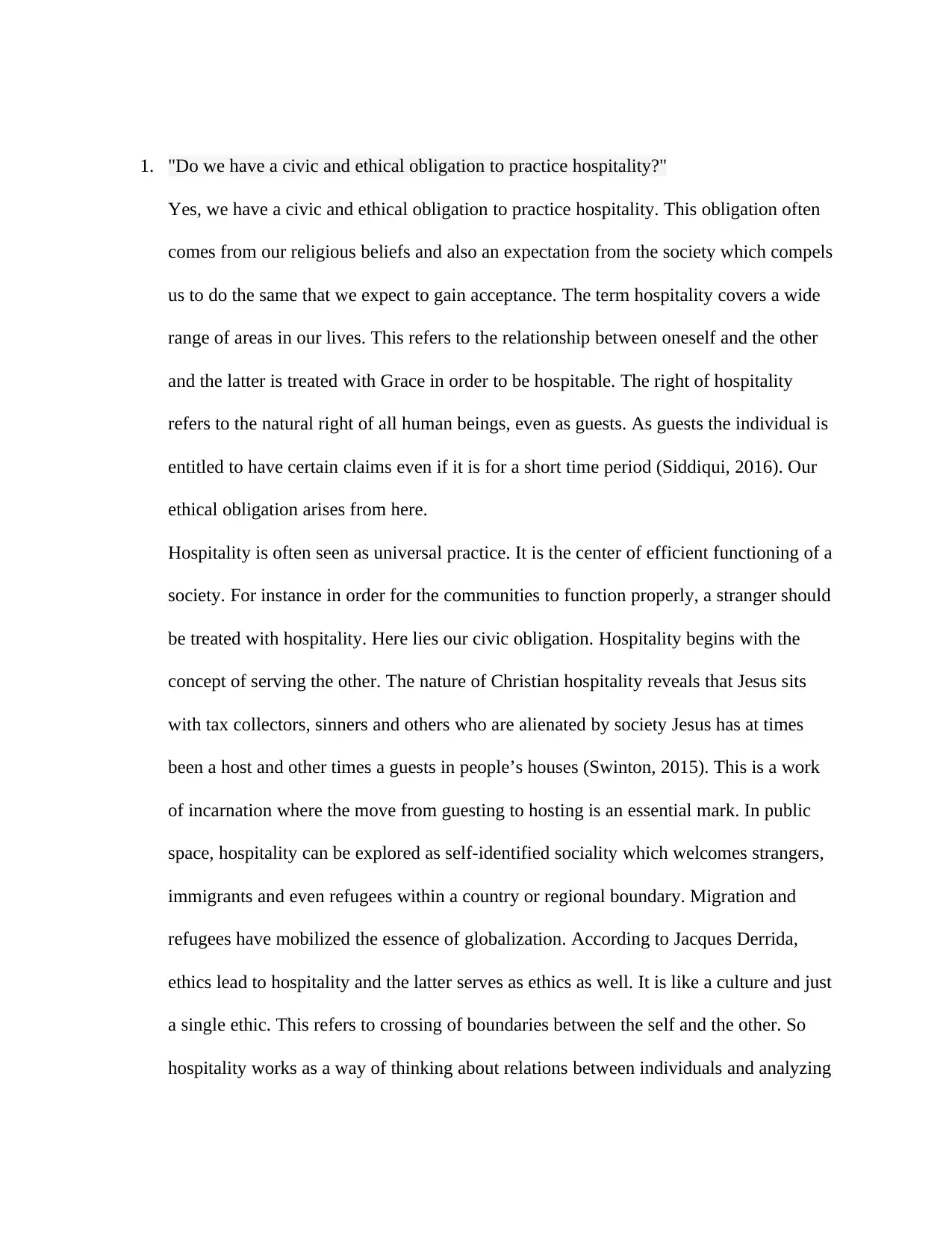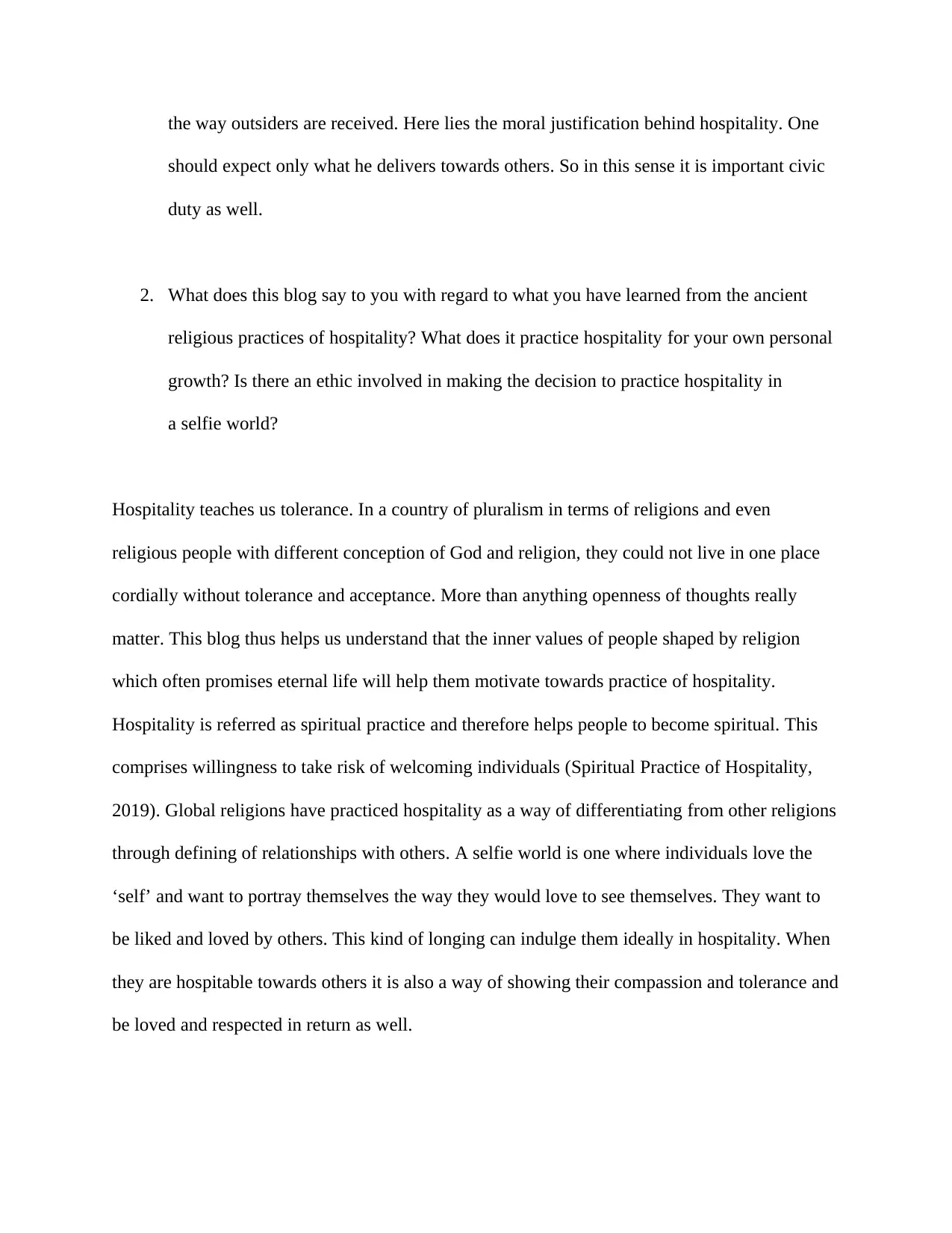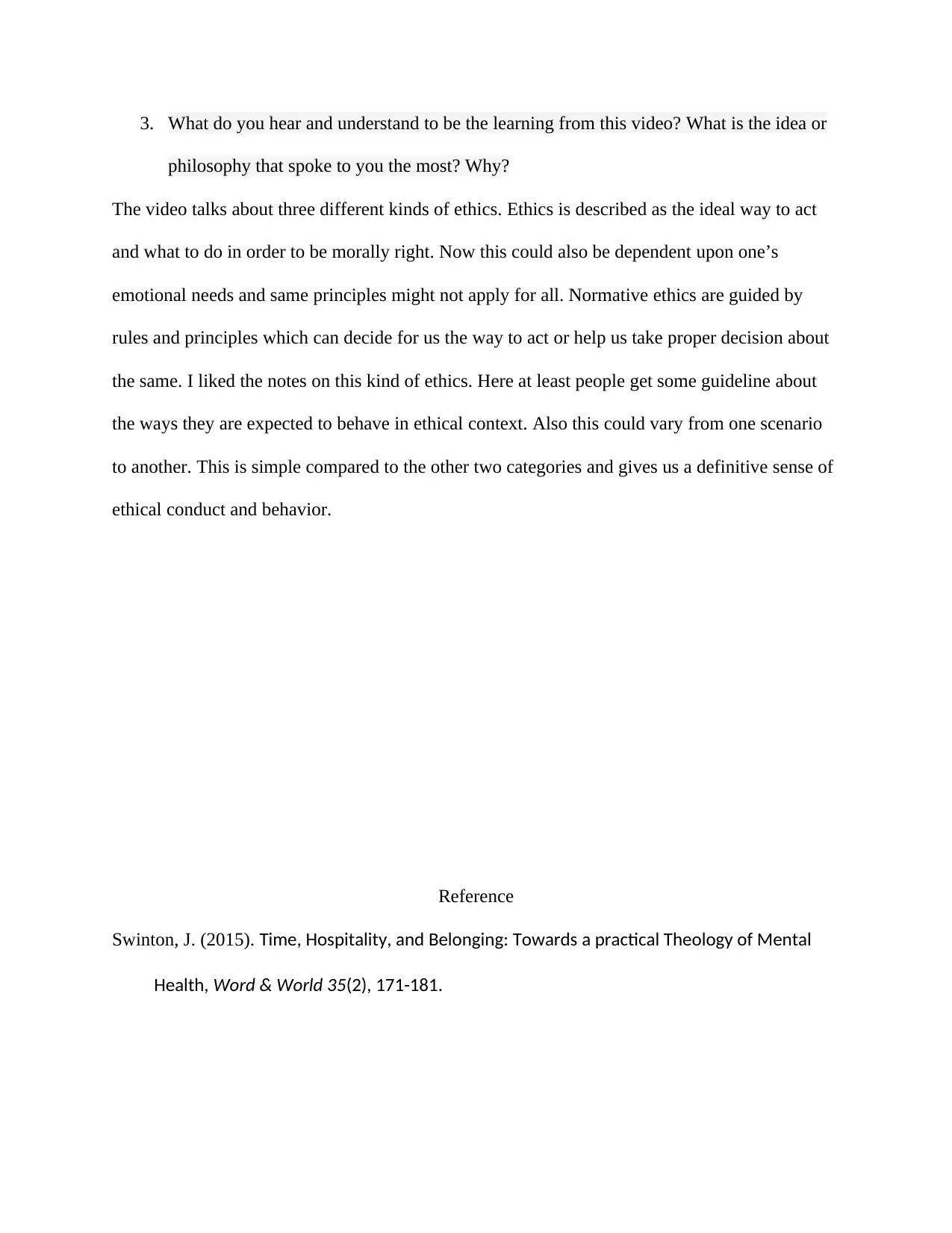Exploring Hospitality: Ethical, Religious, and Philosophical Aspects
VerifiedAdded on 2023/01/10
|4
|886
|68
Essay
AI Summary
This essay delves into the multifaceted ethics of hospitality, examining its civic and religious obligations, and its philosophical underpinnings. The analysis begins by establishing the ethical and civic duties associated with hospitality, drawing upon religious beliefs and societal expectations. It explores the concept of hospitality as a universal practice essential for community functioning, highlighting the significance of treating strangers with grace. The essay then connects hospitality with Christian practices, emphasizing the importance of welcoming others. The exploration extends to the intersection of hospitality with a 'selfie world,' suggesting that acts of hospitality can stem from a desire for acceptance and compassion. Furthermore, the essay discusses the video's insights on ethics, focusing on normative ethics, and providing guidelines for ethical conduct. The references include works by Swinton, Siddiqui, and sources on the spiritual practice of hospitality.
1 out of 4





![[object Object]](/_next/static/media/star-bottom.7253800d.svg)